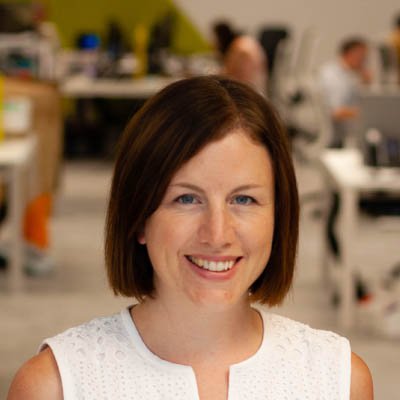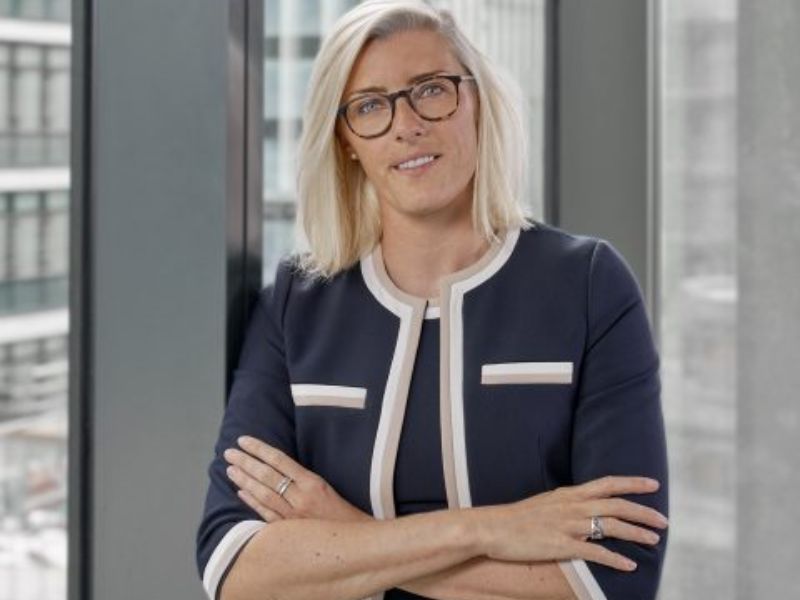 I’m the Co-Founder and Director of the Centre for Collective Intelligence Design at Nesta, the global innovation foundation based in London.
I’m the Co-Founder and Director of the Centre for Collective Intelligence Design at Nesta, the global innovation foundation based in London.
We explore how we can bring together diverse groups of people, with new sources of data and digital technologies (particularly AI) to find new ways to solve social problems. We believe that combining different types of intelligence (machine and human) is what we need to tackle climate change and many of our other complex challenges. We call this approach Collective Intelligence Design. Over the last two years we’ve been working with the United Nations Development Programme’s network of 90 accelerator labs around the world to help them use and apply collective intelligence design to make faster progress on the Global Goals. We’ve just published new research showing the six key ways collective intelligence can contribute to sustainable development. We’re also working with the International Federation of the Red Cross to test how collective intelligence approaches could improve localised humanitarian response to crises, and continuing to try to push the boundaries of Augmented Collective Intelligence (the combination of AI and CI) through our experiments and research programme.
Before this role I held senior management roles in a range of non-profit organisations working on domestic and international issues. I’m also an adviser to the World Economic Forum on technology and society, I’ve been on the Newton Prize Committee and I was a board member of the truly brilliant humanitarian organisation MAG (Mines Advisory Group) for six years.
Did you ever sit down and plan your career?
Yes, several times. What motivates me is finding new and better ways to accelerate positive social change. I’ve deliberately moved between different fields and sectors where I’ve had the chance to try out different methods in new contexts – but always where there has been a goal of making tangible change in people’s lives. I think it’s probably much easier to climb the career ladder by building expertise and reputation in one sector or skills domain, but I always felt that was too limiting. Having more of an exploratory approach to my career takes planning and more effort – and sometimes being prepared to move sideways rather than up. During both my maternity leaves I invested in a career coach to help me think through the next moves I wanted to make, and found it invaluable.
Have you faced any challenges along the way?
Of course, all the time. When you’re trying to innovate and do things that are outside the norm for an organisation or sector inevitably you face resistance or practical difficulties. I do get frustrated when things don’t go as fast or smoothly as I’d like, but I’m also pretty good at problem solving and I’m tenacious. Work challenges do often keep me awake at night, but I try to keep things in perspective. Oh, and of course a recent challenge was trying to work full time and homeschool two young kids during Covid lockdowns. That wasn’t much fun – as most parents will probably agree.
What has been your biggest achievement to date?
There are so many things I’m proud of, but if I’m honest I’m rarely fully satisfied. I can always see how things could be improved. It’s an absolute curse, but also what gives me energy to keep working. One of the achievements that has the most personal meaning to me was the campaign I led over a decade ago for the creation of UN Women, along with incredible people like Stephen Lewis and many brilliant women’s organisations around the world. Going to the UN General Assembly for the launch of the first fully-fledged UN agency devoted to advancing gender equality and empowerment of women was a special moment. I’m also pleased we convinced the UK government to become UN Women’s largest core funder… though I still think they could have been much more generous and ambitious for it.
What one thing do you believe has been a major factor in you achieving success?
Firstly, luck – I was lucky to be born in the UK – one of the world’s richest countries, with supportive parents and a free quality education. I also joined the job market at the start of the millennium when there were plenty of opportunities. Beyond that, all of my successes haven’t really been mine alone – they’ve usually been the product of a lot of people’s hard work and talent. I’ve been fortunate to have had some great teams and collaborators over the years. Any kind of meaningful change is always going to need to be a shared endeavour. I’m also grateful to have had some very wise bosses, especially those who guided me earlier on in my career.
How do you feel about mentoring? Have you mentored anyone or are you someone’s mentee?
I’ve learnt a lot from mentoring – both as a mentee and as a mentor. I was an early part of the Fabian Women’s Network Mentoring Scheme, a scheme designed to get more women into public and political life. I sometimes help mentor at their speed mentoring sessions these days. Even further back, I was a mentor on the Timebank scheme which set up mentoring relationships for refugees, though sadly it no longer exists. But mentoring on it’s own isn’t enough. To get more women, and especially women of colour, into leadership positions – we need systems of patronage too. It’s one thing that men often benefit from.
If you could change one thing to accelerate the pace of change for Gender Equality, what would it be?
I don’t think there is a silver bullet solution. We definitely need to invest in grassroots women’s organisations globally. Organisations like Mama Cash are doing fantastic work in this space, but much more is needed. We also need to properly value and reward what is typically considered women’s work – jobs like childcare, social care, retail. I’m also all for quotas in Parliaments and on boards.
What is Collective Intelligence, how can we best harness it, and what role does Gender Equality play within it?
Collective Intelligence is actually really simple – it’s about people working together better. It’s about enabling all of us to contribute to solving problems that affect our communities. This isn’t a new idea, but now we can use digital technologies to do this at scale and in entirely new ways! One of the core principles of collective intelligence design is about involving a diverse group of people, not just the usual suspects. That’s because all the research shows that diverse groups outperform less diverse ones, and even the smartest individuals. In fact, we know that the more women that are in a group, the more collectively intelligent that group is likely to be. One reason for this is that women frequently score more highly on emotional intelligence – one of the main predictors for a group’s collective intelligence. So if you want your team to improve its problem-solving abilities, you could definitely start by bringing more women into it. But making sure that all team members can contribute freely and independently will be key to ensuring that all the different perspectives can really be heard. It’s important to think about how you can design to mitigate some of the biases that can undermine good group decision-making, such as groupthink or confirmation bias.
If you could give one piece of advice to your younger self what would it be?
Don’t underestimate the amount of time and effort you will need to put into bringing people along with new ideas. Listen carefully to their concerns. Not all will be valid but sometimes they will have spotted something you haven’t.
What is your next challenge and what are you hoping to achieve in the future?
Right now I’m focused on developing the Centre’s programme of work on climate change and health, and developing new strategic partnerships with organisations who’d like to collaborate with us in those areas. One thing I’d like to achieve in the future is to run a nationwide programme of participatory futures activities – creating new platforms to help unlock public imagination about the future. The ability to think about and influence the future has been cornered by powerful special interests and new tech monopolies who shape our views of what’s possible. I’d love to help democratise the future – enabling many more diverse people to explore and articulate their alternative and desirable visions of the future. I think it’s the only way we’ll get out of the mess we’re in.
WeAreTheCity has a back catalogue of thousands of Inspirational Woman interviews, including Cherie Blair, Paula Radcliffe MBE, Caprice Bourret, Anna Williamson and many more. You can read about all our amazing women here.








